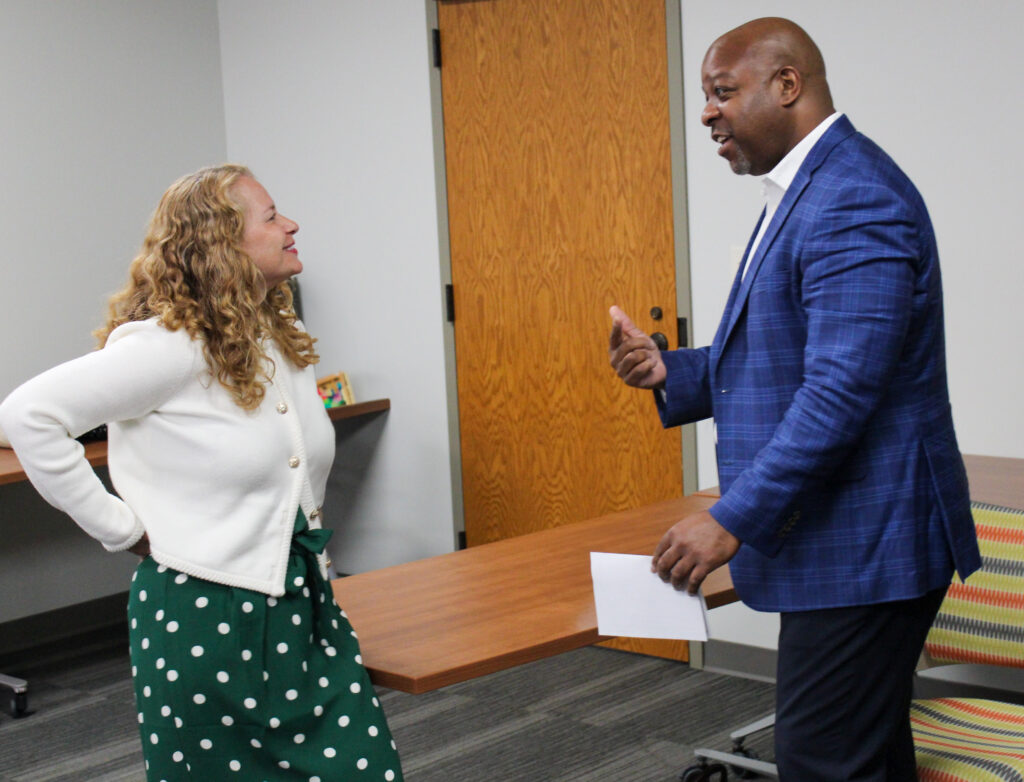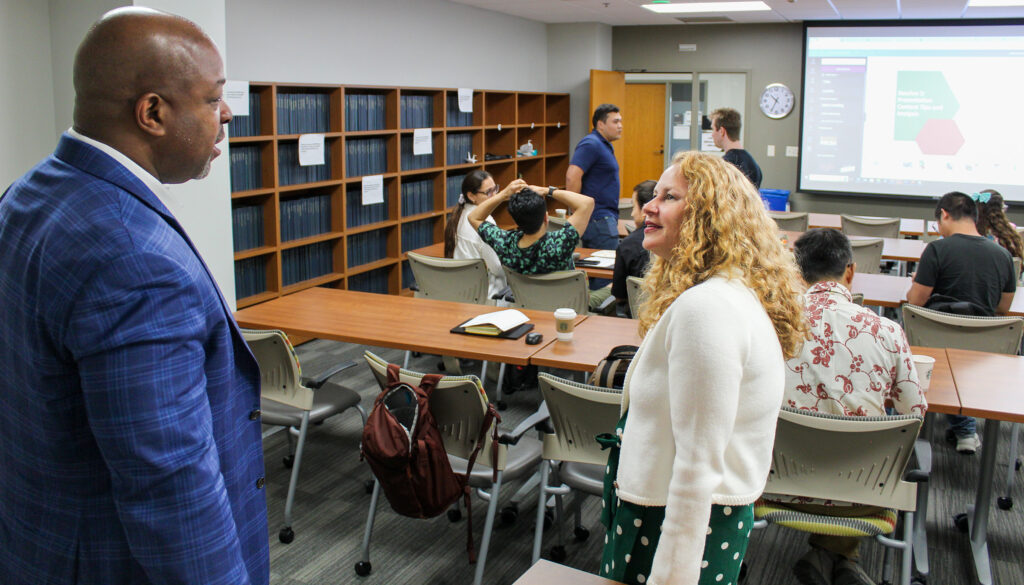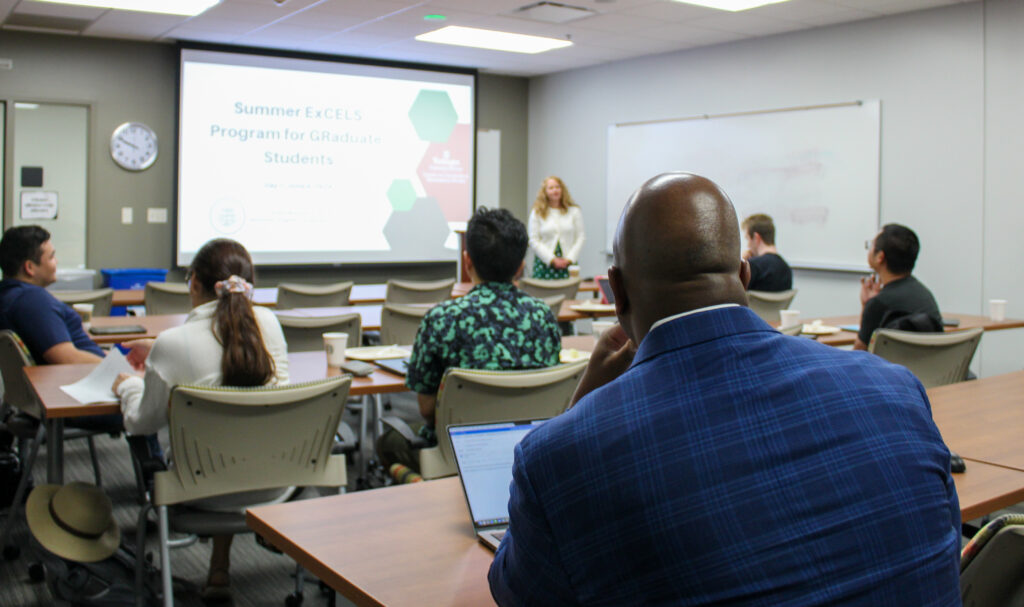Washington University Continuing & Professional Studies (CAPS) English Language Programs (ELP) Director Katie Brown has a desk in January Hall, but her job frequently takes her out of the office to several locations across WashU’s campus and throughout the St. Louis community.
The ELP program, initially designed to help strengthen and advance the English language capacities of WashU students who speak English as an additional language, has expanded in recent years to provide services on multiple campuses and throughout the greater St. Louis region.
Today the program provides English language services to contract workers at WashU and refugees living in the region. The program also helps WashU students – from undergraduates to postdocs – improve their speaking and presentation skills through partnerships with organizations like The Graduate Center and the Office of Postdoctoral Affairs. Those partnerships include the Summer ExCELS Program for Graduate Students which is designed to help participants develop skills to present and pitch their research to diverse audiences.

That is where Dean Sean Armstrong found Brown in early June for his second Dean’s Day at Your Desk. The quarterly event gives the dean a chance to shadow front-line staff and instructors to learn more about their programs, needs and focus. Joining graduate students during their research presentation gave Armstrong a deeper understanding of the importance of ELP for students and he witnessed the strong sense of community the exercise produced.
When Armstrong joined Brown, she was working with Liz Wolfson, media specialist for the Program in Public Scholarship, to lead students through the first day of the ExCELS Program. The program, spread over three weeks in June, consists of two full days of training and workshopping followed by a final presentation session where students present their research in a five-minute thesis format before a panel of judges. Brown used the opportunity to guide students through the science and history of storytelling, highlighting how brain mapping has revealed the power of storytelling and how the basic story structure of rising action, climax and resolution has not changed since Roman times.
“It is a pattern of creating a compelling speech that, if you follow it, will earn you not just an audience, but a readership that will want to follow up on the details of your work,” she told the students, adding how important it was to pair a storytelling arch with a clear call to action.
Brown said ELP’s participation in events like the ExCELS Program was important because it gives her a chance to share what ELP offers to a broader group of students at WashU.
“It allows us to get in front of graduate students that may have not taken classes with ELP before and to exposure to what it is that we do,” she said. “We’re helping graduate students at WashU develop skills that they can use while they’re grad students in preparing to attend conferences, job talks or interviewing. We are helping them with post-study employability.

Armstrong said that even though his day at Brown’s “desk” only revealed a small part of what she and the CAPS English Language Programs do, it still provided a valuable glimpse of the impact the program had in the broader WashU community.
“I appreciate that the University values what ELP has to offer,” he said. “There are also professionals across campus who would find the program beneficial to their own role or for members of their team. Improving communication among our colleagues enhances equity.”
